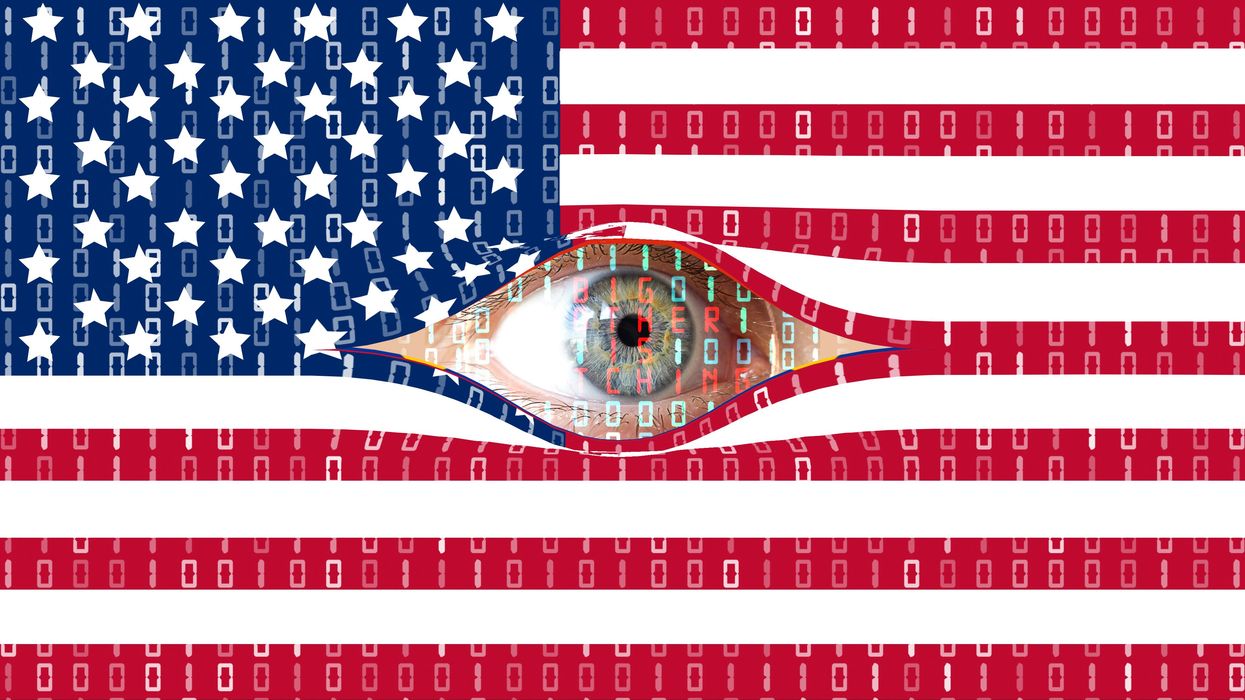
Bjorn Bakstad/getty

Big Brother is about to get a whole lot bigger.
A $1.2 trillion spending bill recently passed through the U.S. House of Representatives, one that allocates funding to recipients and prohibits policies that would have been banned in more ordinary times.
But these times are anything but ordinary — with American citizens being closely monitored, molded, manipulated, and muted.
Linking a Chinese-style social credit system to digital money and digital IDs may seem far-fetched, but it shouldn't.
Among these allocations are funds earmarked for censorship efforts, as outlined in this more than 1,000-page document.
As the Foundation for Individual Rights and Expression warns, under the Biden administration, federal and state governments frequently utilize influential positions to combat what these organizations perceive as misinformation and disinformation. The government possesses the authority to take action despite its methods being clumsy and harmful. Government officials exert informal pressure through various nefarious means: intimidation, threats, and persuasion, all to influence the decisions of private platforms and restrict the dissemination of disapproved content. Under the current administration, this use of informal pressure is on the rise and, if left unaddressed, could become a normalized method of regulating speech outside the bounds of the Constitution. The Biden administration regularly pushes private entities to silence or censor the speech of individuals and organizations it disapproves of.
Consequently, these companies, mostly major tech companies, are increasingly giving in to demands to censor, condemn, and suppress content labeled as misinformation or disinformation. To be more specific, they are more willing than ever to censor and condemn those who lean right and dare to question the methods of the current regime. As FIRE asks, "The government wants to tell you what's true and what's false. What could go wrong?"
In short, everything.
To compound matters, the bill also grants more power to the Department of State's controversial Global Engagement Center. This shady agency will receive funds in order to target foreign countries and non-state actors involved in "propaganda and misinformation."
However, the GEC has recently made headlines due to allegations that its actions have also infringed upon the freedom of speech of American citizens. In fact, according to credible reports, the GEC is little more than a propaganda arm for the Biden administration. The agency stands accused of playing a central role in the White House's attempt to use private companies to enforce censorship. It's important to remember that the government is constitutionally prohibited from engaging in censorship.
The bill implemented vaccine mandates and advocated for funds to develop a central bank digital currency, or CBDC.
There is a reason why cash is king. It gives individuals a sense of control and freedom, as it can be easily managed and stored according to personal preference. On the contrary, CBDCs are about erasing personal freedom and implementing digital identification systems. CBDCs systems often utilize biometric data to verify an individual's identity through physical characteristics such as facial features, fingerprints, and voice patterns. While adopting CBDCs may offer certain conveniences, transitioning to a cashless society poses significant risks for the general population. Such a society would inherently increase the surveillance of individuals. For instance, in China, where digital IDs and cashless transactions are widespread, a social credit system is in place to monitor and evaluate citizens based on their behavior, purchasing habits, and internet searches. Those with low scores may face consequences like restricted access to financial services, travel bans, and limitations on venue entry.
Linking a Chinese-style social credit system to digital money and digital IDs may seem far-fetched, but it shouldn't. For governments that wish to control its people, CBDCs and digital IDs are not only feasible, they are entirely logical. CBDCs make it easier for authoritarianism and censorship to thrive. Unlike physical cash, CBDCs strictly prohibit anonymous transactions, ensuring every purchase is closely monitored and recorded. This means that those in power know your shopping habits completely. Understanding that these government-backed digital currencies will be fully traceable and subject to permissions is essential. In simpler terms, those in charge can dictate what you can and cannot buy.
Furthermore, CBDCs are programmable, meaning they come with predefined rules. This allows for the possibility of an individual's money supply being cut off or their funds being "expired" instantly. It is not difficult to imagine a scenario where someone deemed dangerous could be immediately disconnected from their hard-earned savings. For those who believe they can refuse to comply and continue using physical cash indefinitely, I regret to inform you that a digital dollar is inevitable, regardless of your preferences. It is only a matter of time, not a question of if. Big Brother is about to get a whole lot bigger.
John Mac Ghlionn
Contributor